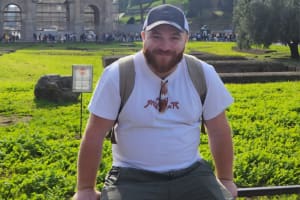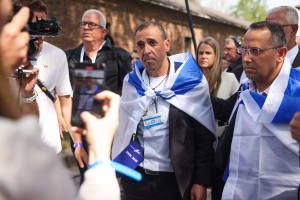Study finds nearly half of Israelis volunteered after brutal Hamas-led attack on Oct 7

In the immediate aftermath of the Hamas-led terror attack on Oct. 7, 2023, Israel experienced an unprecedented surge in volunteerism. Nearly half of the country's population stepped forward to offer their support in various ways, according to a new survey released last Thursday.
Prof. Michal Almog-Bar, head of the Institute for the Study of Civil Society and Philanthropy in Israel at the Hebrew University of Jerusalem and lead author of the study, told the Times of Israel, “This is a mega-event for Israel and for Israel’s civil society. The scale of activities, the areas of activities… there are things that we haven’t seen before. We’ve had wars, military operations and the COVID crisis, but the scale and the magnitude [here] are very different.”
The survey revealed that volunteer efforts reached across all segments of Israeli society, with the shock and scale of the Oct. 7 attacks serving as a powerful motivator. Among those who volunteered, 90.2% cited a strong desire to help others and a deep concern for the well-being of fellow citizens as their primary motivation for wanting to serve.
Volunteerism reached an all-time high immediately after the event but gradually declined to 28.7% after one month and now stands at 15%.
A surge of financial support from nonprofit organizations, foundations, and individuals played a crucial role in enabling Israelis to establish effective local volunteer operations and coordination efforts on the ground.
Israeli NGOs and other local philanthropic organizations have donated “tens of millions of dollars” while “donations from North American Jewry are estimated to be [in the range of] hundreds of millions of dollars… a very, very high level of philanthropy,” Almog-Bar noted.
She said a few factors can explain the high level of involvement in Israeli society.
One important element was the various protest organizations. “These groups already were well-organized, close-knit and motivated and so were able to immediately turn their infrastructure to support the war effort," she said.
Another point of distinction Almog-Bar mentioned was that Israel is “a very familial society, we feel very attached to each other and the communities we live in – that’s why when there is a need and a dramatic event, the first thing people ask is, ‘How can I help?’”
She said that trust in government institutions to address problems has declined, yet “people here feel they have strong social networks which would help them in times of need.”
“People are good-hearted and want to help and give, but when there is no coordination, when everyone is doing what they can, it can turn out to be messy sometimes,” Almog-Bar concluded. “But people have really saved lives, especially in terms of helping evacuees with their needs and giving psychological support, all these services have been so needed.”

The All Israel News Staff is a team of journalists in Israel.
You might also like to read this:
















